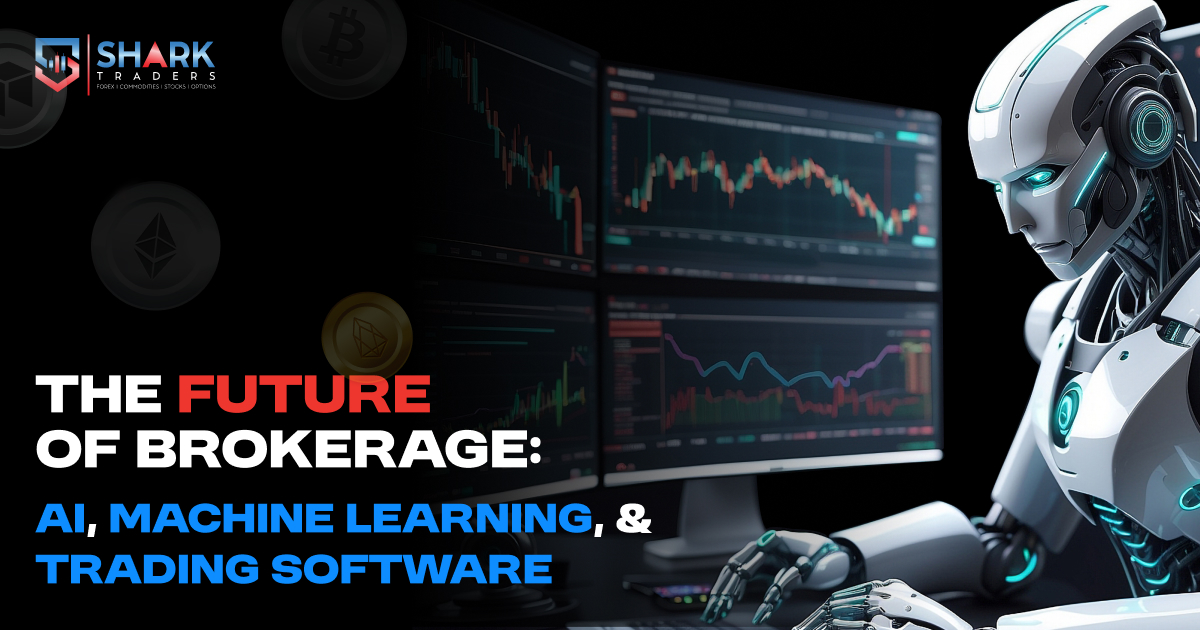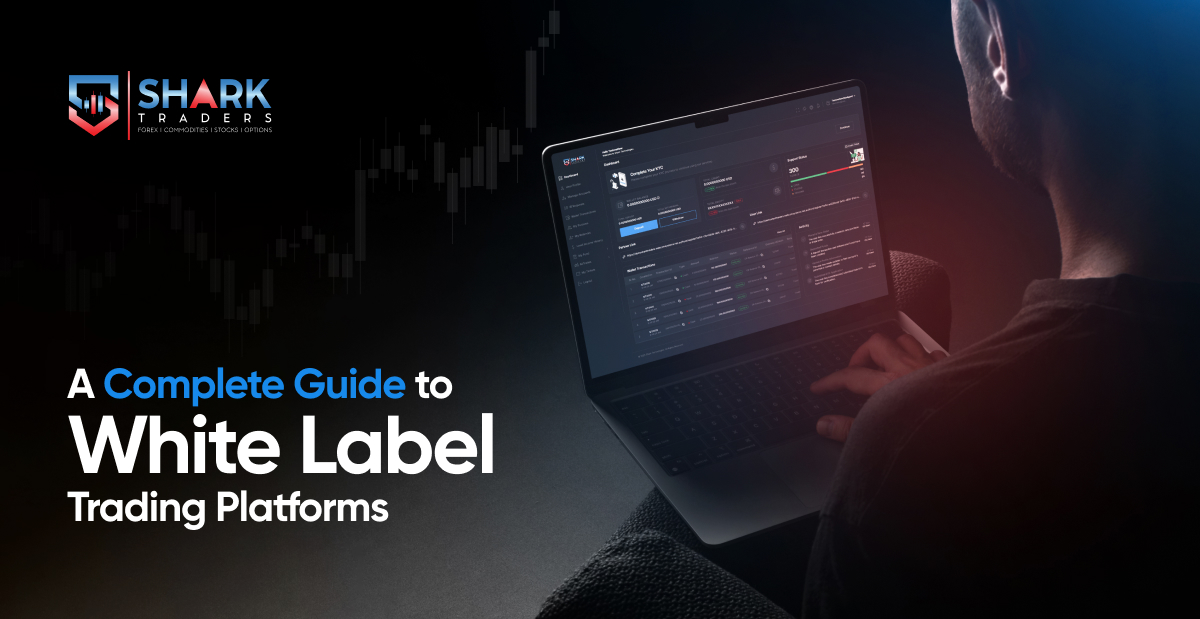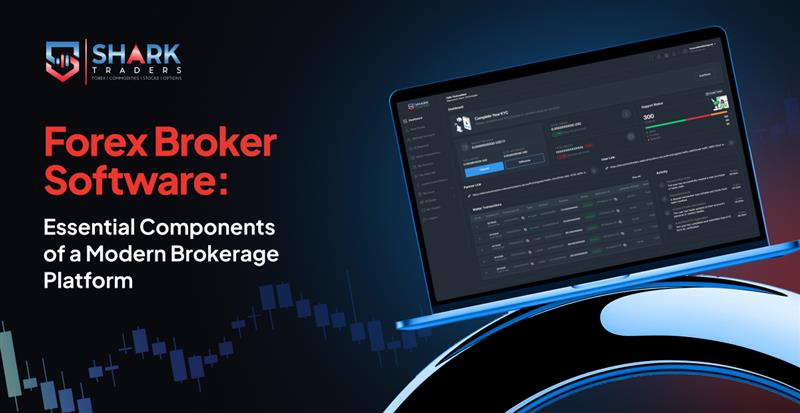Artificial Intelligence and Machine Learning technologies are transforming each and every sector due to their ability to enhance both efficiency and productivity. One of the most revolutionary applications of these technologies is in trading software, which is significantly changing how the brokerage industry operates. Likewise, an increasing number of businesses are investing in these innovations within their brokerage infrastructure to provide superior services for their traders and investors.
In this article, we break down the evolving role of AI and ML in brokerage, how they work, their benefits, challenges, and what the future holds.
Key Role of AI, ML, and Trading Software in Modern Brokerage
Artificial Intelligence and Machine Learning play a crucial role in the brokerage industry by optimizing both the front-end trading activities for traders and the back-office operations for brokers. Basically, they are turning traditional platforms into smarter, faster, and more adaptive ones. These are no longer just an option but have become an integrated part of modern brokerage infrastructure.
AI improves decision-making through decision intelligence by using advanced algorithms to analyze the data across diverse markets, economic indicators, and user behavior. Moreover, they also bring automation by evaluating such a massive amount of data to find profitable opportunities and execute trades before they flee.
Additionally, brokerages don’t have to manually carry out KYC, compliance checks, and trade settlement, as the AI-powered systems can automate such operations for the brokers. They can even flag any unusual or fraudulent behavior on the platform in real time to avoid risks and prevent losses.
How Do AI, Machine Learning, and Trading Software Work Together?
Let’s understand the practical application of these technologies a little deeper to comprehend how they work in brokerage:
Data-Driven Market Analysis and Prediction
Financial markets are highly active in nature and generate enormous volumes of data every instance. Machine learning algorithms can easily gather and analyze this voluminous data, that too from diverse sources, whether it’s historic patterns, social media sentiment, the latest headlines, and more, to finally predict the most favorable outcomes. Furthermore, these ML models can detect even the smallest changes and anomalies while also continuously training and learning to improve their prediction accuracy.
Intelligent Order Execution
Execution speed is crucial for success in the trading market. Delays during execution can lead to slippage, and missing out on profitable opportunities can result in significant financial losses. Consequently, profits and losses can be determined in microseconds.
Here’s how AI assists by bringing both speed and precision. AI-powered trading software optimizes trade execution by analyzing multiple markets, liquidity pools, and order books. Furthermore, smart algorithms can automatically split larger orders into smaller ones, reducing risk and capturing multiple trades at the best prices.
Automated Compliance and Risk Management
Brokers need to comply with various complex and frequently changing regulatory requirements. To assist with this challenge, AI automates compliance processes related to KYC (Know Your Customer), AML (Anti-Money Laundering), and data privacy.
From user onboarding with real-time document verification to ongoing monitoring with risk scoring and fault detection, AI-powered software can handle it all. Additionally, machine learning models can scan order transaction histories to identify unfamiliar or fraudulent patterns. They can instantly flag suspicious activities and ensure compliance across the whole platform.
Personalized User Experiences
AI and machine learning aim to deliver hyper personalization across various software services. An AI-powered brokerage trading platform can analyze its users’ behavior, goals, and preferences to offer exceptional personalization. As a result, the platform can provide users with customized suggestions, risk warnings, and additional features to enhance their trading experience.
Benefits of Integrating AI, Machine Learning, and Trading Software
Here are the core benefits of integrating AI, ML, and trading software for brokerage:
- In contrast to humans, AI-powered systems operate quickly to analyze massive market data and execute trades on time.
- Traders and investors can use AI technologies to spot the right trades with precision that exceeds human capabilities.
- AI and machine learning-powered trading software helps to reduce the cost of hiring large back-office teams for client onboarding and compliance.
- AI-powered chatbots can help clients resolve their questions at any time and on any day.
- There is no need to invest in additional resources, as AI-powered systems can easily handle large workloads.
Challenges In the Integration Of AI and ML In Brokerage
Despite its potential, integrating AI and ML into brokerage is not without challenges. Here are these challenges:
- AI and ML models work well only if they are supplied with good-quality data. They can make mistakes and give wrong predictions with poor or insufficient data.
- AI trading platforms don’t provide complete transparency on how they operate and suggest outcomes.
- AI models are a common target for sophisticated cyberattacks.
Emerging Trends: What’s Next To Expect?
As AI and machine learning continue to advance, they are not only optimizing current brokerage operations but also reshaping how the entire ecosystem works. Here’s what you can expect in the upcoming years.
- Blockchain integration with AI to create decentralized trading platforms that would help create trustless environments.
- Artificial intelligence and machine learning models would use quantum computing to process simulations and market scenarios in real time.
- Brokerage systems would operate completely autonomously, requiring no manual intervention at all.
- AI-powered voice and chatbots would function as intelligent trading systems through natural language interactions.
- Trading platforms powered by AI and machine learning will become more intuitive, offering users a highly personalized experience.
End Note
Artificial Intelligence (AI), Machine Learning (ML), and advanced trading software are significantly enhancing brokerage infrastructure for a variety of reasons. From the moment traders log in and use the trading platform, all operations are optimized through automation, speed, and intelligence. Shark Technologies assists brokers in upgrading their existing infrastructure and entering the market with the most innovative trading platforms powered by emerging technologies such as AI, ML, and more. We design trading software that allows brokerages to operate more efficiently, scale more quickly, and enable their traders to trade more effectively. Contact us to learn more about our services.
Also Read : The Role of AI in Customizable Trading Software





